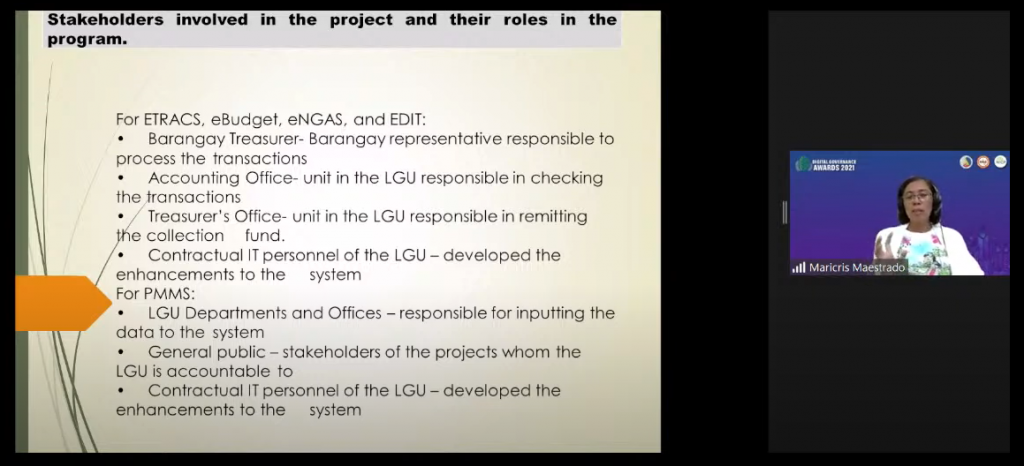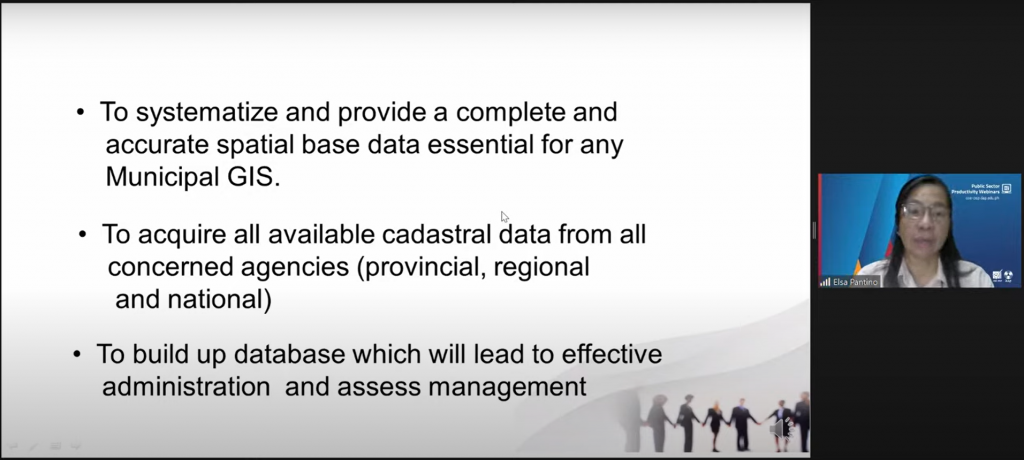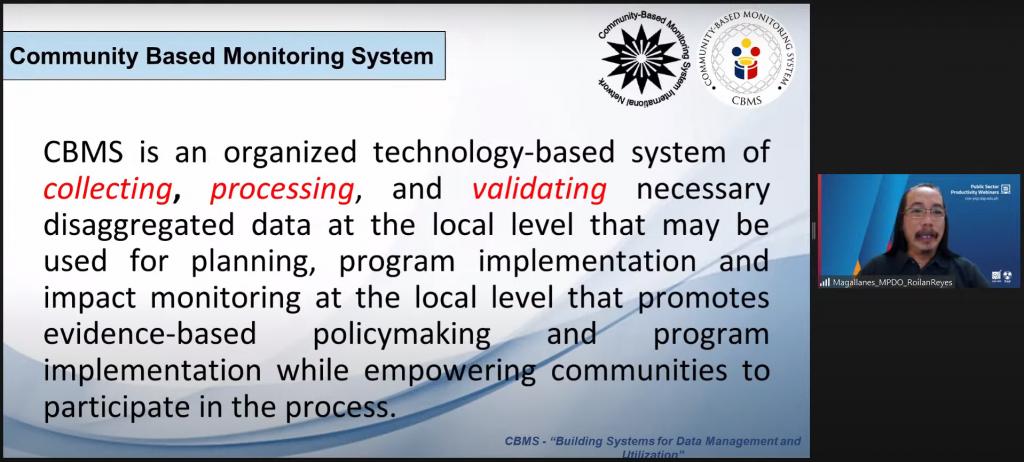The Development Academy of the Philippines, as the country’s focal organization for the Asian Productivity Organization’s Center of Excellence on Public-Sector Productivity (COE PSP), held a two-day webinar on Productivity Initiatives to Improve Service Delivery in the Local Government on August 31 and September 2, 2022. The webinar aimed to present initiatives by local government units (LGUs) to enhance service delivery and productivity, as well as provide insights on the various challenges from conceptualization to implementation in local government.
Improving barangay interoperability
The first day of the webinar featured the presentation of LGU-Barangay Connect (LB Connect), a productivity initiative of the Municipal Government of Loon, Bohol. Ms. Maricris Maestrado, Project Development Assistant from the Office of the Mayor of Loon, presented the background of the project and its key developments, such as improving resource allocation, interconnectivity, and data sharing between the municipal government and its component barangays. She said it has now become an efficient monitoring tool for tracking the barangays’ fiscal and financial responsibilities. Two key success factors for the project were the enhancement of internal control measures to improve good governance and the introduction of a program that is inclusive and applicable for all personnel.

Using data for disaster risk reduction and planning
The second day of the webinar showcased the Guagua Geographic Information System (GGIS) and Magallanes’ Community Based Monitoring System (CBMS). These two systems are currently being utilized in planning, monitoring, and evaluating different programs and projects that their respective municipalities are taking.

Ms. Elsa Perez-Pantino, Municipal Planning and Development Officer with the Municipal Government of Guagua, Pampanga, discussed the initial issues and concerns that spurred them to pursue the GGIS. Aside from disaster risk reduction, the project is also being used in land tax management and comprehensive land use planning. Ms. Pantino urged other LGUs to implement their own GIS by engaging the necessary human resources and ensuring the accuracy of data captured as geographical information is helpful in terms of decision-making for project implementations. Despite being a long-term undertaking, a GIS initiative can be possible with the support of their local leaders.

Mr. Roilan Reyes, Municipal Planning and Development Officer from the Municipal Government of Magallanes, Cavite, followed with a discussion about how CBMS was designed to address the lack of data for poverty reduction in the town by collecting, processing, and validating data for the municipality’s planning, implementation, and monitoring, while also engaging and empowering communities. Information from the CBMS is now used to guide the creation of official plans for disaster risk reduction, barangay development, and tourism development, among others. It has also been useful in implementing disaster relief and assistance during the 2020 eruption of the Taal Volcano and the COVID-19 pandemic. Mr. Reyes motivated the viewers by highlighting that despite Magallanes, Cavite being a 4th class municipality, they were able to set up a CBMS that has already served a wide range of purposes.
This two-day webinar is available for replay on Facebook and YouTube. Stay tuned for more webinar series in the coming months.
